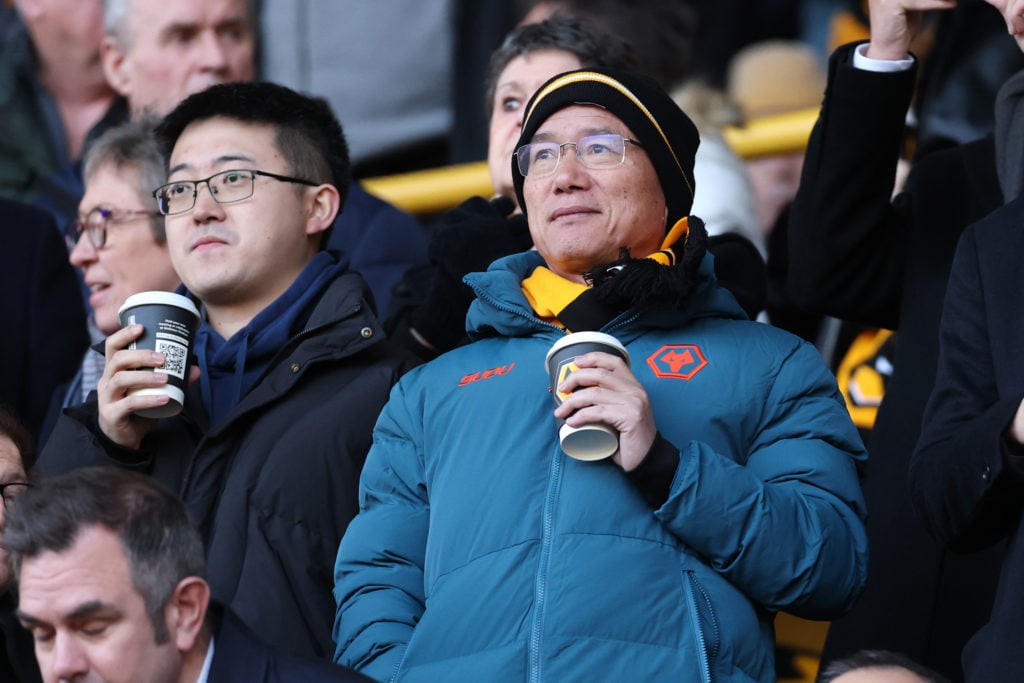Wolves fans have been put through a rollercoaster of emotions since Fosun’s takeover in 2016 but more recently, low points have dominated the news.
Wolves have gone from competing in the Europa League five years ago to consistently battling against relegation from the Premier League.
Most of their slide down the league table can be attributed to Fosun, whose lack of investment in the squad has caused the Old Gold to trend in the opposite direction.
The Wolves owners are reluctant to invest their own capital into the playing squad and improve the infrastructure of the football club, instead relying on player sales to fund their purchases.
In the summer, Matheus Cunha will become the latest prized asset to leave Molineux as several big clubs are lining up to trigger Cunha’s £62.5 million release clause, with one finance expert now shedding insight into the state of the current ownership.
- READ MORE: The real reason Vitor Pereira rejected the Everton job in 2019 before becoming Wolves manager

Fosun are looking to sell Wolves
Recently, Wolves have been run like a football club destined to eventually suffer relegation to the Championship.
| Position | Team | Played MP | Won W | Drawn D | Lost L | For GF | Against GA | Diff GD | Points Pts |
| 15 | 29 | 7 | 13 | 9 | 32 | 36 | -4 | 34 | |
| 16 | 29 | 9 | 7 | 13 | 33 | 49 | -16 | 34 | |
| 17 | 29 | 7 | 5 | 17 | 40 | 58 | -18 | 26 | |
| 18 | 29 | 3 | 8 | 18 | 28 | 62 | -34 | 17 | |
| 19 | 29 | 4 | 5 | 20 | 25 | 65 | -40 | 17 |
Although Wolves were the second-highest spenders in the January transfer window, the owners are reluctant to dip their hands into their pcokets, with most of Cunha’s impending transfer likely to be pocketed.
Speaking exclusively to Molineux News, TBR’s Head of Football Finance Adam Williams suggests that Fosun are actively looking to sell the football club.
“To me, Wolves’ accounts read like a club whose owners are trying to put it in the shop window,” Williams began.
“Spending has slowed down and the lack of significant growth in commercial and matchday income suggests that the club aren’t particularly interested in investing in the infrastructure behind the scenes to catalyse growth.
“They’ve got costs under control and, while they do have negative operating cash flow – basically how much actual money is flowing in and out of the business, as opposed to profit or loss, which includes non-cash expenses like amortisation – their position is actually one of the best in the division.
“Fosun have taken on some external debt but they have also converted some of the money they themselves have lent the club into equity, which is a tacit admission that they know they aren’t going to get it back. Better to tidy up the balance sheet for a prospective new investor.”
Why Wolves aren’t an attractive proposition compared to other Premier League clubs
It appears that Fosun are looking to put Wolves on the market, which will be refreshing for supporters to hear, although the process of selling a football club is long.
There are several other Premier League sides, who are arguably in better positions than the Wanderers to attract fresh investment, most notably Tottenham.
Wolves position in the table, coupled with their unwillingness to pay a dividend in the sale, suggests waiting for a fresh buyer is going to be long and frustrating.
Explaining why it could be difficult for Fosun to sell their stake, Williams added: “The market for minority investment is pretty saturated at the moment. Spurs, Bournemouth, Brentford and a few others are all looking for this kind of equity deal.
“It’s a hard sell, in my opinion. Wolves aren’t going to pay a dividend and, if it’s only a small minority stake, there’s no guarantee of any direct influence at the club. You could say a minority stake like that is little more than a very expensive season ticket.
“Yes, the stake might appreciate in value, but who are you going to sell it to if they have the same problems? You have an exit problem.”
It doesn’t sound like an ideal situation for the Wanderers to be in however, Williams did at least offer a glimmer of hope by suggesting a private equity firm could be interested in the proposal.
“That said, it is something we are seeing increasingly,” he added. “It can open doors for, say, a private equity firm who want more potential clients or partners to pick up the phone. Co-owning a football club has a validating effect like that.”
Receive a digest of our best Wolverhampton Wanderers content each week direct to your mailbox



 Join the fan conversation
Join the fan conversation